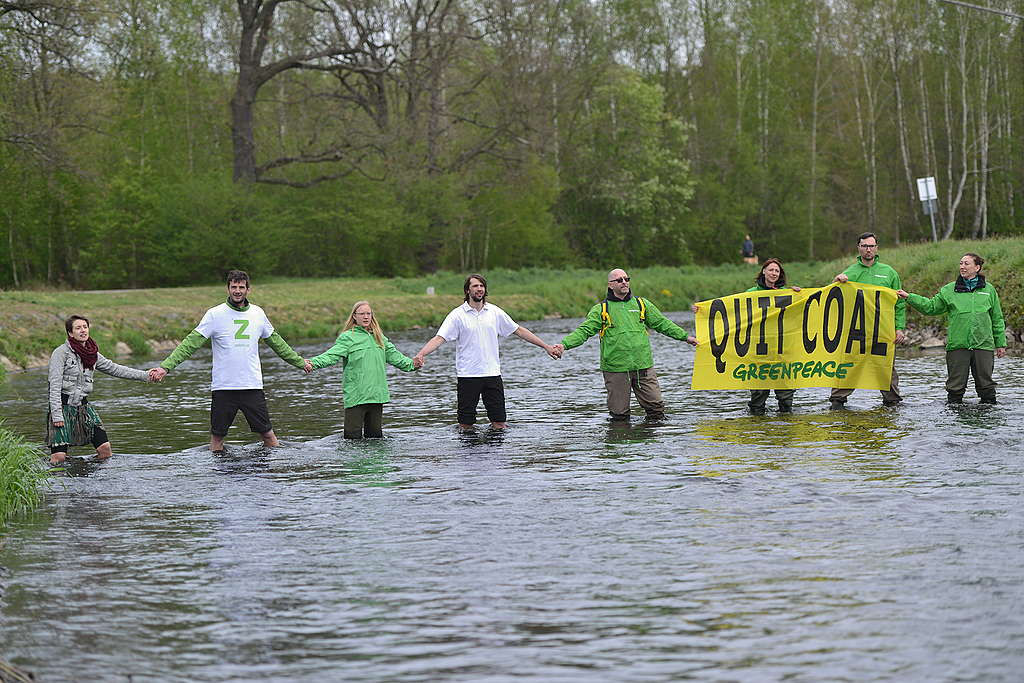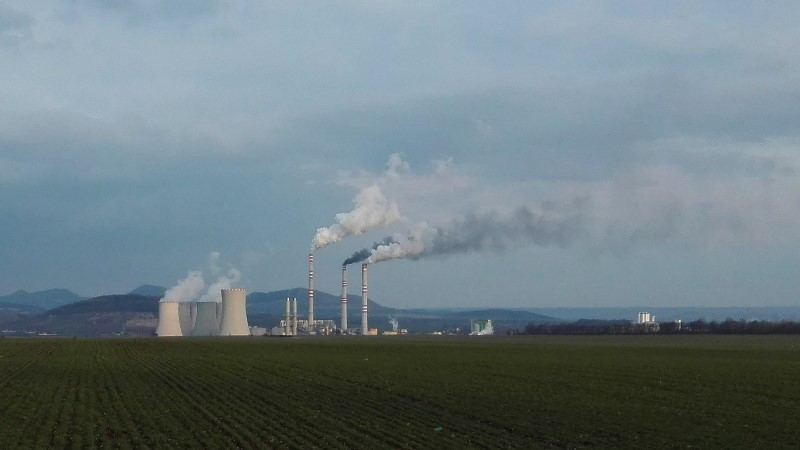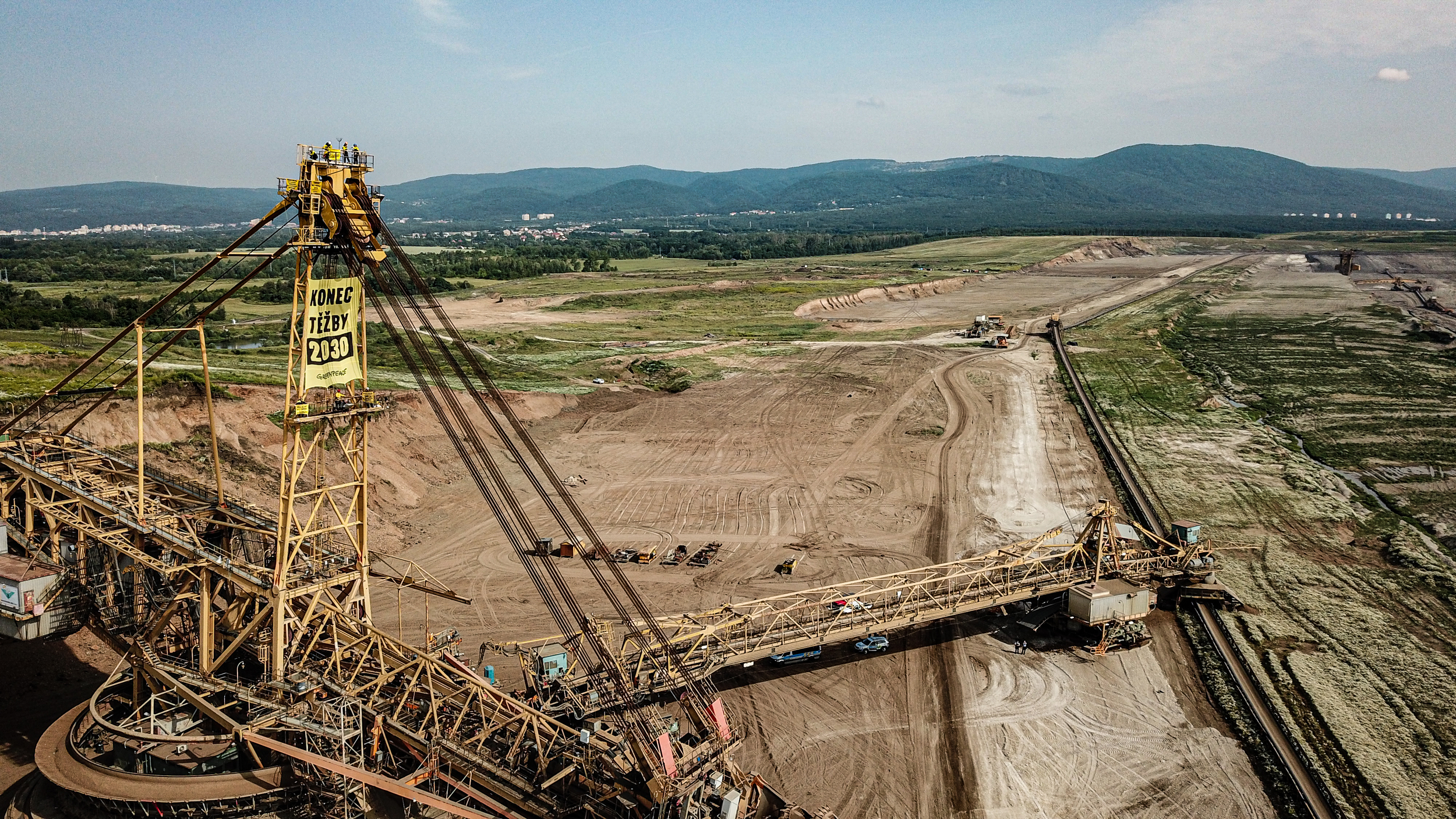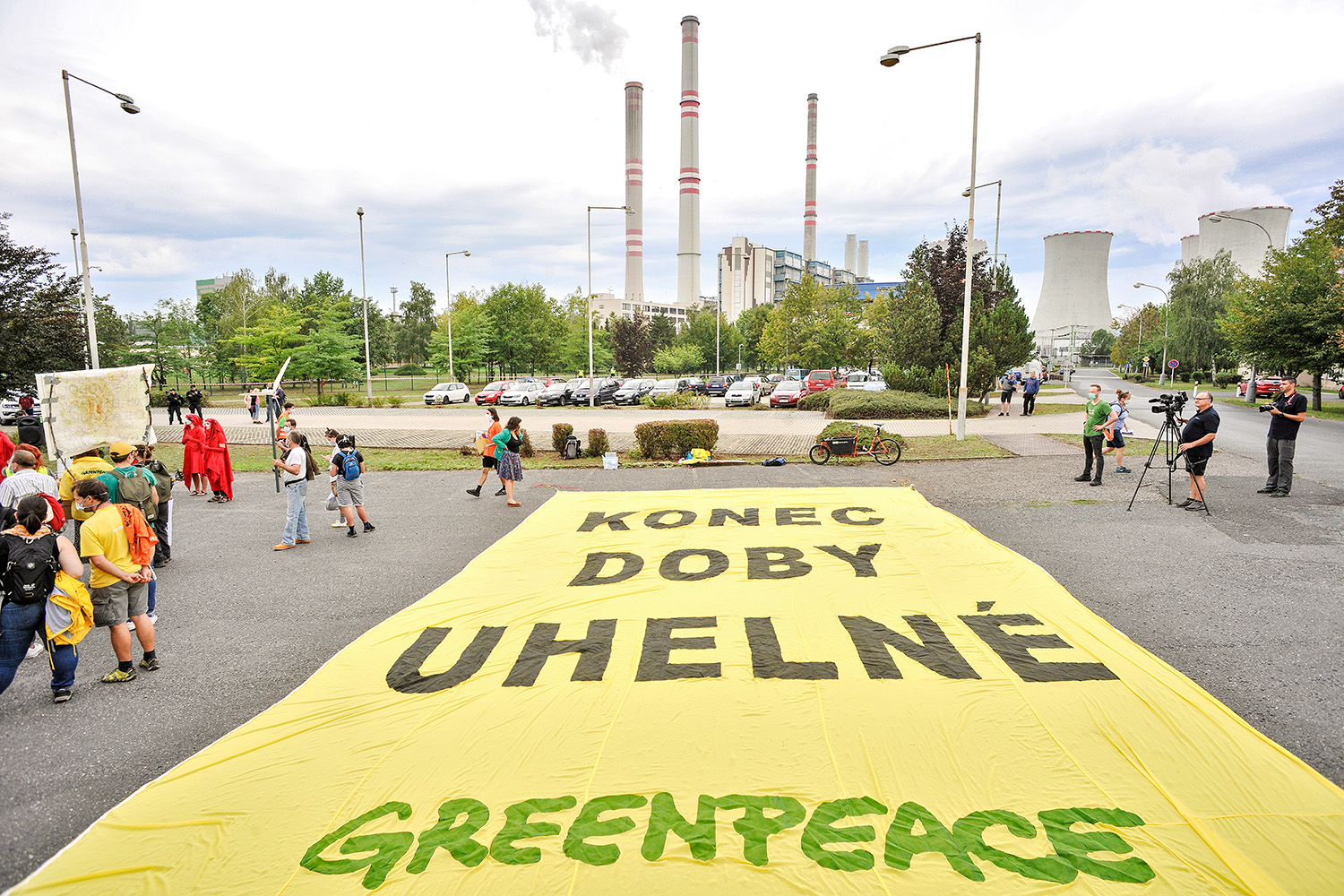Greenpeace Czech Republic will defend the interests of citizens of the Liberec Region beyond borders. This week the environmental organisation was officially accepted as a participant in the Environmental Impact Assessment (EIA) process of the Turów lignite mine expansion in the area where Poland borders the Czech Republic and Germany.
As the only Czech entity involved, Greenpeace CZ will be able to inspect the file and respond to the information contained therein. It may also provide additional information, expert analyzes and suggestions, which will then have to be taken into consideration before the final decision. It also gains the right to appeal against the decisions of Polish authorities and even bring them to court. Greenpeace CZ can thus be more effective in promoting water protection for the inhabitants of Liberec Region as well as general environmental and global climate protection.

The Turów mine has a valid mining license only until the end of April 2020. However, the mine operator is now requesting an extension of the mine production until 2044 which means that the mine will move only 100 meters from the Czech border and 1200 meters from the nearest Czech municipalities. The mine would also be significantly deepened, up to 30 meters below the level of the Baltic Sea. In the period between 2020 and 2038, the burning of newly mined coal at Turów would produce at least 10.3 million tons of carbon dioxide emissions per year, which would contribute significantly to further deepening the climate crisis.
Coal mining in Turów brings with it a number of negative accompanying phenomena that already plague people on the Czech side of the border. After enlargement, they would suffer from more dust and noise, and there would be a risk that up to 30,000 inhabitants of the Liberec Region lose their drinking water. There would also be a risk of desiccation of the landscape where plants and animals would hardly survive. Entire local ecosystems would be severely and irreversibly damaged. However, both Poland and the mining company PGE as a mine operator refuse to provide compensation to the Czech side for environmental impacts. At the same time, the project does not take into account the provision of an alternative drinking water supply.
Therefore, Greenpeace Czechia, in cooperation with the Liberec Region and the municipalities concerned, also addresses the European Parliament with a petition for saving drinking water in the Czech-Polish-German border area. The petition can already be signed at various locations in the Liberec Region, the digital version of the petition that Greenpeace is currently finalizing will be available from 2 December at www.stopturow.cz.
Nikol Krejcova, coal campaign coordinator in Greenpeace Czech Republic:
“As Greenpeace Czech Republic we want to use every possibility how to stop the enlargement of the lignite mine Turów which has disastrous negative impacts on people on the Czech side of the border as well as global climate. We had limited opportunities as a participant in transboundary process to influence the decisions made in Poland. We are happy that we can represent local people from Liberec Region and their interests whereever it is possible. That is also a reason why we decided to join the petition for European Parliament which should bring attention to a severe problem of water loss in Liberec Region due to the mining.”



